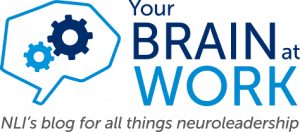By Erin Wickham Broadly, leadership is largely about making decisions. All day long. Every day. By the end of the week, or in the lead-up to big strategy sessions (like...
Read More →

FEATURED INSIGHT
By Erin Wickham Broadly, leadership is largely about making decisions. All day long. Every day. By the end of the week, or in the lead-up to big strategy sessions (like...
Read More →
We spoke with three neurodiversity advocates about how to create more neuro-inclusive hiring practices and workplace cultures.

Companies are finding it hard to bring people back to the office, despite luring them with everything from free lunch to free concerts with Lizzo. Here’s how to bring people back, in a brain-friendly manner.

New research suggests this one cognitive bias may give you grit, but keep you from making the career change you need or send you back to a job not right for you.

Shorter virtual lessons can help organizations change in a matter of weeks instead of years.

Why retooling recognition, generosity, and praise in a hybrid world can help team members become more visible, productive, and appreciated.

Join millions of employees in creating culture change at scale by reaching out today.

In 2007, David and Lisa Rock and their team had been working in leadership development and executive coaching for ten years, when David coined the term “NeuroLeadership.”ef

North America
Africa
South America
Asia
Europe
Australia
© NeuroLeadership Institute 2025. All Rights Reserved
This site uses cookies to provide you with a personalized browsing experience. By using this site you agree to our use of cookies as explained in our Privacy Policy. Please read our Privacy Policy for more information.